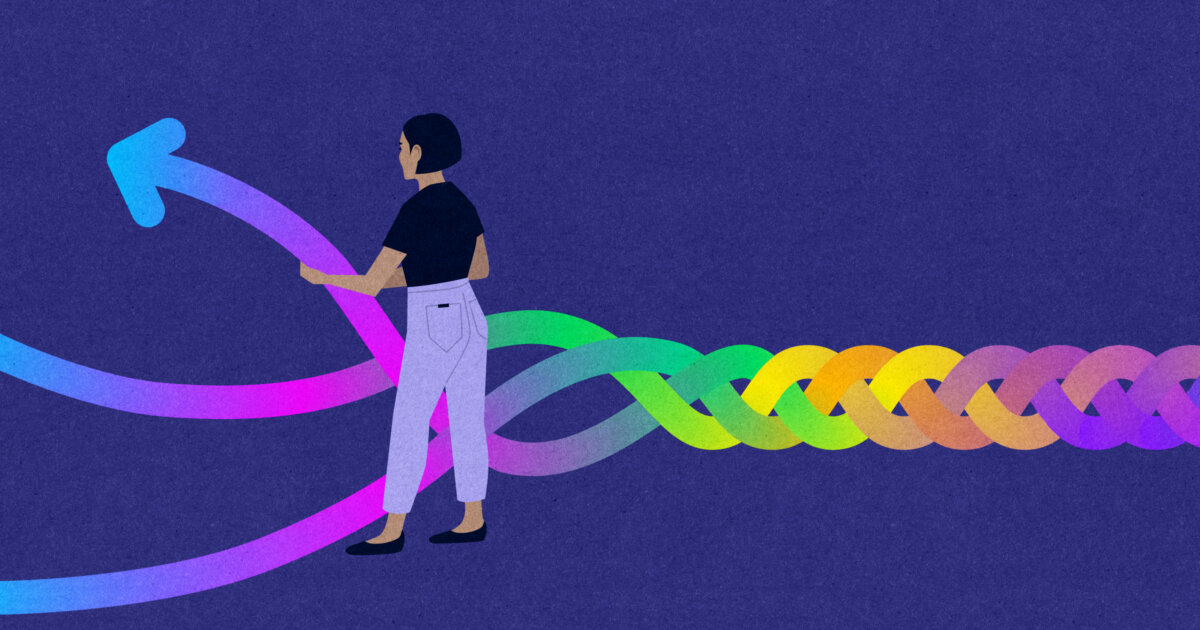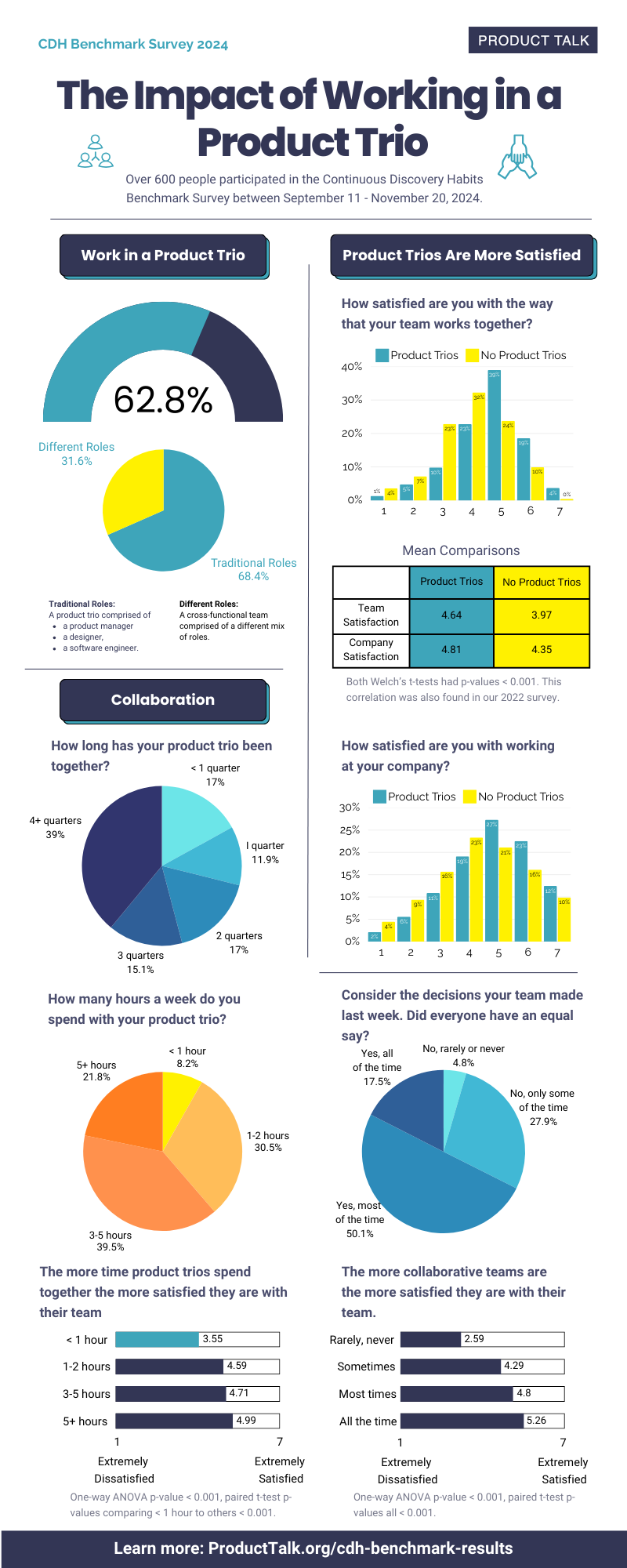Report: Blue-collar workers feel less satisfied and less respected in their jobs
It’s safe to say that worker happiness and well-being is shaky at best. In 2024, just about half of all American employees reported feeling very satisfied with their jobs, and only about a third were happy with their pay or opportunities for promotion. Younger employees seem particularly frustrated by their working conditions: The latest edition of Gallup’s State of the Global Workplace report found that just 34% of workers said they were thriving, with a marked drop from 35% to 31% among those under the age of 35. While this sentiment persists across the American workforce, a new report from the Pew Research Center indicates that blue-collar workers are perhaps the most likely to feel dissatisfied and detached from their work. In a survey of more than 5,200 employees, only about 43% of those who identified as blue-collar workers said they were very satisfied with their jobs—while 53% of other workers expressed the same. (Pew defines blue-collar workers as those in such industries as manufacturing, agriculture, retail, hospitality, and transportation.) A key issue for many blue-collar workers who are frustrated by their jobs is pay. Overall, a third of them said they were dissatisfied with their compensation, though that figure was higher (40%) for women who held those jobs when compared to men (30%). The study found that workers had a variety of grievances, with many claiming that their wages did not keep pace with the rising cost of living; others said they were frustrated by pay inequities and that they earned less than colleagues who did comparable work. Beyond pay, blue-collar workers were also more dissatisfied with their health insurance coverage and lack of flexibility in working hours. But the greatest difference in how blue-collar workers feel about their jobs relative to other workers is whether they view it as a real career. More than half of blue-collar workers described what they do as “just a job to get you by,” rather than a career. (Women were even more likely to say that, with 61% characterizing their work as just a job.) Only a third said they considered their work to be a career—while 56% of other workers identified their jobs as careers. There is also a clear generational divide when it comes to happiness among blue-collar workers: Older workers were more likely to be satisfied with their job on all counts. In fact, nearly half of them said they viewed their work as a career. It’s possible that blue-collar workers feel less attached to their jobs in part because of how they are perceived. Less than a third of blue-collar workers said they believed other Americans respected their jobs, when compared to nearly half of all other workers feeling like their jobs demanded a certain level of respect. Many of them did, however, report feeling more respected by their colleagues or even by customers. Given their frustrations about compensation and often-limited opportunities for career advancement, it is hardly surprising that so many blue-collar workers feel that their work gets little recognition by the broader American public. But some things could be looking up: While too many blue-collar workers remain underpaid, they have also benefitted from historic wage growth in the aftermath of the pandemic.

It’s safe to say that worker happiness and well-being is shaky at best. In 2024, just about half of all American employees reported feeling very satisfied with their jobs, and only about a third were happy with their pay or opportunities for promotion. Younger employees seem particularly frustrated by their working conditions: The latest edition of Gallup’s State of the Global Workplace report found that just 34% of workers said they were thriving, with a marked drop from 35% to 31% among those under the age of 35.
While this sentiment persists across the American workforce, a new report from the Pew Research Center indicates that blue-collar workers are perhaps the most likely to feel dissatisfied and detached from their work. In a survey of more than 5,200 employees, only about 43% of those who identified as blue-collar workers said they were very satisfied with their jobs—while 53% of other workers expressed the same. (Pew defines blue-collar workers as those in such industries as manufacturing, agriculture, retail, hospitality, and transportation.)
A key issue for many blue-collar workers who are frustrated by their jobs is pay. Overall, a third of them said they were dissatisfied with their compensation, though that figure was higher (40%) for women who held those jobs when compared to men (30%). The study found that workers had a variety of grievances, with many claiming that their wages did not keep pace with the rising cost of living; others said they were frustrated by pay inequities and that they earned less than colleagues who did comparable work. Beyond pay, blue-collar workers were also more dissatisfied with their health insurance coverage and lack of flexibility in working hours.
But the greatest difference in how blue-collar workers feel about their jobs relative to other workers is whether they view it as a real career. More than half of blue-collar workers described what they do as “just a job to get you by,” rather than a career. (Women were even more likely to say that, with 61% characterizing their work as just a job.)
Only a third said they considered their work to be a career—while 56% of other workers identified their jobs as careers. There is also a clear generational divide when it comes to happiness among blue-collar workers: Older workers were more likely to be satisfied with their job on all counts. In fact, nearly half of them said they viewed their work as a career.
It’s possible that blue-collar workers feel less attached to their jobs in part because of how they are perceived. Less than a third of blue-collar workers said they believed other Americans respected their jobs, when compared to nearly half of all other workers feeling like their jobs demanded a certain level of respect. Many of them did, however, report feeling more respected by their colleagues or even by customers.
Given their frustrations about compensation and often-limited opportunities for career advancement, it is hardly surprising that so many blue-collar workers feel that their work gets little recognition by the broader American public. But some things could be looking up: While too many blue-collar workers remain underpaid, they have also benefitted from historic wage growth in the aftermath of the pandemic.




























































































![Building A Digital PR Strategy: 10 Essential Steps for Beginners [With Examples]](https://buzzsumo.com/wp-content/uploads/2023/09/Building-A-Digital-PR-Strategy-10-Essential-Steps-for-Beginners-With-Examples-bblog-masthead.jpg)



![How One Brand Solved the Marketing Attribution Puzzle [Video]](https://contentmarketinginstitute.com/wp-content/uploads/2025/03/marketing-attribution-model-600x338.png?#)





![How to Use GA4 to Track Social Media Traffic: 6 Questions, Answers and Insights [VIDEO]](https://www.orbitmedia.com/wp-content/uploads/2023/06/ab-testing.png)







![[Hybrid] Graphic Designer in Malaysia](https://a5.behance.net/920d3ca46151f30e69b60159b53d15e34fb20338/img/site/generic-share.png)
























